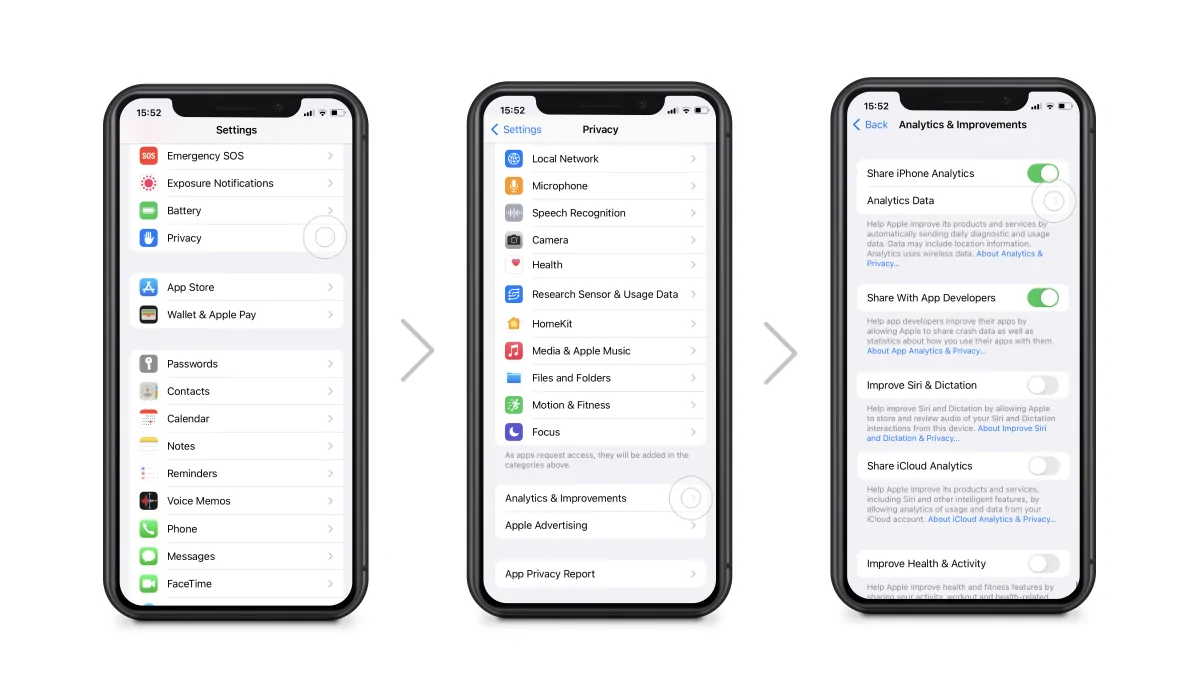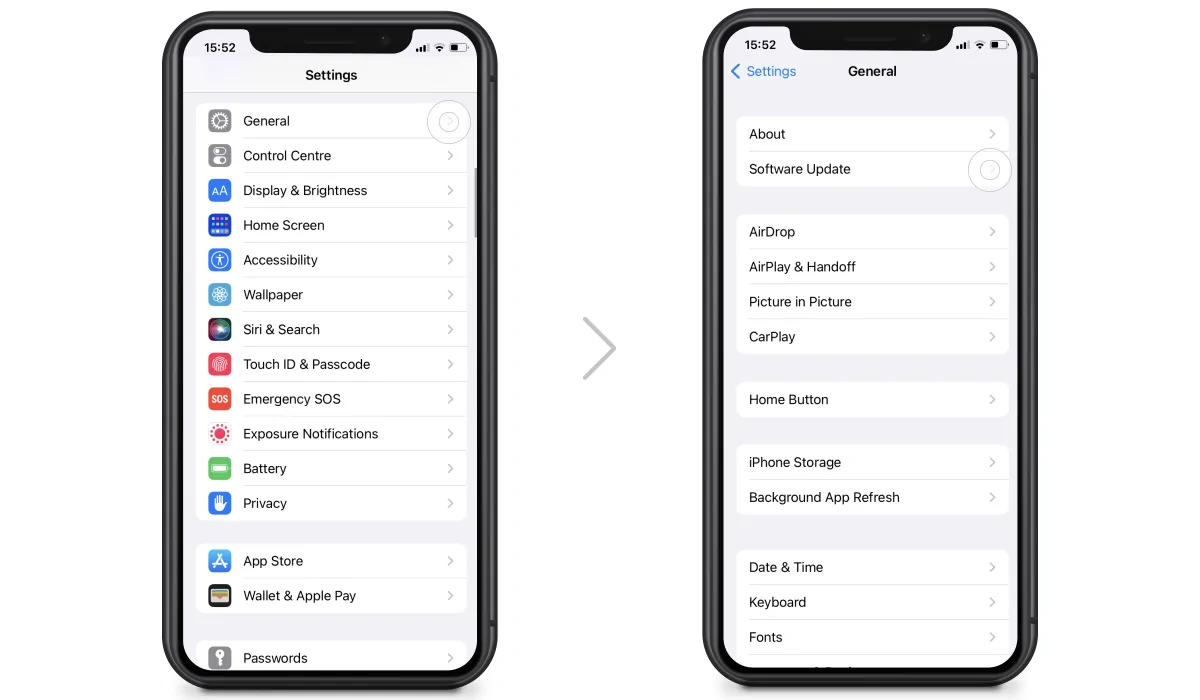How to Know If Your Phone is Hacked
Has my iPhone been hacked? If you have ever asked yourself that frightening question, then you finally came to the right place to get your answers. I know firsthand that unpleasant tingling feeling inside your tum when something is not right with an iPhone. And I think, to some extent, Apple is to blame for it. They spoiled us with their closed operating system and promises of security, so every time our phones glitch, we get sweaty hands and try to recall when it was the last time we did a backup. And myths that some viruses can turn your iPhone into a brick don’t help at all.
Of course, I don’t know all viruses. By the way, we have recently written an article about calendar viruses. Perhaps a new super trojan is being projected right now while I’m typing these words. But before it’s not around, it’s nice to recognize widespread malware. The more you know, the simpler it will be to prevent threats or to get rid of current ones. Pour yourself some camomile tea, buckle up and get ready to learn which signs that your phone is hacked you shouldn’t ignore.
Battery Drains Faster than Usual
Remember when you used to charge your Nokia once a week, and it still had like 33% of battery life by Sunday? Those were the days. Now a rare iPhone can last till night. Yet if your battery started to drain out much faster all of a sudden and your phone feels hot to touch all the time, it may be a sign of unwanted processes running in the background. Check the Maximum Capacity of your battery. If it doesn’t show the signs of wearing out that much, then it could mean your iPhone has been hacked. It could be a simple trojan, but in the worst scenario, your device could have been cloned to spy on you. If you don’t have access to public interest information, have a talk with your significant other.
New Apps that You Didn’t Install
I always have a little heart attack each time one of my apps changes its logo design. Ugh, I hate changes. Then, like an ordinary paranoic, I do an audit of all my applications and hope I won’t find any unfamiliar names. What I am saying is, keep your device in order, and know the exact number of installed apps and their names so that if you spot an unusual application, you know for sure you didn’t install it. Delete an unknown application and keep an eye on it. If it appears again against your will, better take your iPhone to the service.
iPhone Switches Off
An iPhone can switch off on its own because of water damage, because of battery issues, and because of a faulty app. If it’s water damage, just dry it properly, and if the shutdowns continue, then bring it to the service.
In some cases, you can solve the issue with a hard reset. If it didn’t help, and you’re sure the deal is not in battery whatsoever, then it might be a faulty app. Remember when the issue appeared first, determine what application you have installed shortly before that and delete it.
Unusual Text Messages
If you receive a weird or spam text, do not respond to it and do not click links in it. In the first case, even if you text to opt-out of receiving messages, you only inform spammers that your number is alive and functioning. And besides, it can be a premium rate number and you will lose money by texting back. And in the second case, by clicking the link, you may install malware.
If you spot an outgoing message, you have no memory of sending it can be a sign that your iPhone has been hijacked. An intruder can use your phone to send messages to premium-rate numbers or to send spam and malware to your contacts.
Inappropriate Pop-ups
Pop-ups flashing here and there on your display are signs your phone is hacked. If it happens, it is the work of either a virus or an invasive app. Run the antivirus and determine which app causes the issue.
Your Phone Becomes Hot of Unexpected Increases in Data Usage
If you start regularly running out of data yet your web routine hasn’t changed, it’s a clear indication that your iPhone has been compromised. It can be mining software or hidden software running in the background and leaking your personal data to third parties.
The Phone Turns Itself Off and Restarts on Its Own
What’s worse than holding a phone in your hand and watching helplessly how it turns on and off completely on its own. If you remember specifically what’s the last app you installed before the issue occurred, then delete it right away and restart your iPhone manually. If not, check a log to detect what causes problems:
– Tap Settings
– Tap Privacy
– Tap Analytics & Improvements > Analytics Data.

You’ll find a list of reports there. Open reports from the day when the issue started and to the date and check whether there is a specific app mentioned more than once. If so, delete the app and restart an iPhone manually.
If your iPhone is still living its own life, then it must be a virus and you need to scan your device with anti-malware software.
Poor Performance
Is your iPhone running slow and incapable of opening several web pages or apps at once? Then it might be busy with running malware in the background.
How to Prevent Your iPhone from Being Hacked
To stop asking yourself: “Has my iPhone been hacked?”, follow the next simple tips.
Learn how to recognise, prevent and get rid of adware on your Mac.
Use Ad-blockers Like AdLock
The most common way to catch a virus is to touch something that you shouldn’t have touched in the first place. In the virtual space, such things are ads, banners, pop-ups, and other highly irritating things that have nothing to do with the site’s content. Make yourself a favor and block them all using AdLock, an ad blocker for iPhone, which is free by the way if you only use it to block ads in Safari. But if you want to block ads in the apps and other browsers, you’ll enjoy a Premium subscription for the price of a venti Pumpkin Spice Latte.
Use Protection Software
Apple has assured us of the invulnerability of their devices. Unfortunately, now their claims sound naïve and outdated as hackers work faster and more effectively than their security experts. It’s wise and clever to have protection software running in the background all the time to repel attacks. Or, if you worry it will drain your battery too fast, use it to scan your device at least once a week and right after visiting a shady website. Download protection software only from trusted developers and don’t hesitate to read reviews.
Update Timely Your iPhone and Its App
Apple likewise app developers roll out updates not only to cheer you with new features but also to patch potential security holes. It’s better to turn on automatic updates than to rely on your memory. To turn on automatic updates, tap Settings > General > Software update > Automatic updates and tap both toggles there to enable them.

That being said, some updates still require your attention. The applications usually inform you when you need to install an update manually. And when there is a major iOS update, you’ll see a system notification in the Settings.
Try to Use VPN
Not only does VPN allow you to visit geo-blocked websites, it works as an invisible super-cloak. It keeps your information anonymous and secure; it encrypts your traffic and makes it impossible to detect your movements on the web. Use VPN each time you need to reach a questionable website.
Use Password Manager
Arguably, your old yellow legal pad is the best password manager. At the very least, no one on the internet can hack it. On this advantages end. A trustworthy password manager instantly generates strong passwords, keeps them all in order and, most importantly, always on hand. It poses fewer temptations to use one old password for all your accounts.
Do Not Use Public Wi-Fi
Mobile providers offer great data deals for you to stop using public Wi-Fi forever. Even if you’re abroad, it is still better to enable roaming or even buy a local SIM card from a trusted mobile provider than to connect to free public Wi-Fi. The danger is you don’t know who set it up and with what intentions. By joining public Wi-Fi, you expose your information to strangers at best and to cybercriminals at worst. If using public Wi-Fi is unavoidable, turn off AirDrop, and File Sharing, and connect through a VPN.
Do Not Use Third-party App Stores
Apple is really possessive when it comes to software from third-party stores. It might seem unnecessary and make antitrust investigators raise an eyebrow, but at the end of the day, it prevents a lot of security issues. Apple maintains firm control over the apps offered in the AppStore. You can’t expect the same maintenance level from third-party stores. Besides, you would have to jailbreak your iPhone to install an unofficial application. And once you do so, all security guarantees and warranties from Apple will be canceled.





